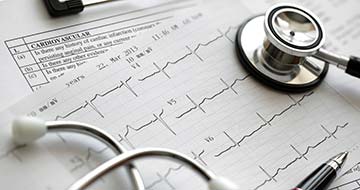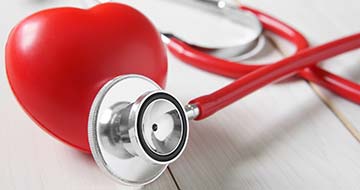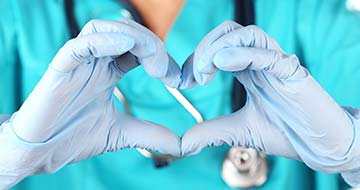Services
The first step in your care process is to understand the nature of your disease so that we can diagnose your condition.
Cardiac Electrophysiology, is the study of the electrical activities of the heart, specifically for the purposes of diag...
When our patients present with problems that may be cardiovascular in nature, we help determine the most likely diagnosi...
We help our patients improve blood flow in their arteries and veins by using very small tubes and specialized tools to d...
When the heart is functioning normally, the arteries are clear and open to allow for easy passage of blood through and o...
The highly trained surgeons and specialists at Biltmore diagnose and treat structural heart disease. We understand the n...
Top 10 Health Screenings
We all need to have regular health screenings to make sure we are healthy and everything is on track. Having regular health exams and tests can help find problems before they start, and they can help find problems early, when your chances for treatment and a cure are better. By getting the right health screenings and treatments, you are increasing your chances for living a longer, healthier life.
What are the top health screenings I should get?
There are a number of screenings that are important, and depending on your age, health, family history and lifestyle choices, you may need to consider other screenings not listed here. However, as a general guideline, these are some of the most important exams for a majority of people.
- Cholesterol – Over 30 percent of American adults have high cholesterol. High cholesterol puts you at risk for heart disease and stroke. High cholesterol has no signs or symptoms, so it’s important to get it checked to know for sure.
- High blood pressure – High blood pressure is a common and dangerous condition. It’s called the “silent killer” because it often has no warning signs or symptoms. Be sure to get it checked regularly.
- Diabetes – Too much glucose in your blood can cause serious problems over time. This can damage your eyes, kidneys, and nerves. Diabetes can also cause heart disease, stroke, and even the need to remove a limb. Have your doctor check your blood glucose, or blood sugar, regularly.
- Breast cancer – It’s unknown why some women get breast cancer, but there are many risk factors that include obesity, taking birth control pills and more. If you’re over age 50, especially, it’s important to get a mammogram every two years. Women aged 40 to 49 should talk to their doctor about when to start and how often to get a mammogram.
- Cervical cancer – Cervical cancer found early may be easier to treat. So having a cancer screening can make a difference. Pap tests every 3 years are recommended for women ages 21–29. A Pap test and HPV test (co-testing) is recommended every 5 years for women ages 30-65. Or you can continue to get a Pap test alone every 3 years.
- Colorectal cancer – Colorectal cancer occurs when tumors form in the lining of the large intestine, which includes the colon and rectum. It is common in both men and women. Anyone over the age of 50 should get either a colonoscopy every 10 years or a virtual colonoscopy every 5 years. Alternatively, a stool-based screening can be performed every year.
- Prostate cancer – The prostate is a small gland in men that produces fluid for semen. Men ages 55-69 should talk to their doctor about whether to get screened. Routine screenings for men age 70 or older aren’t recommended because the potential risks outweigh the benefits for most men.
- Skin Cancer – Skin cancer is the most common cancer in the United States. Report any unusual moles or changes in your skin to your doctor, especially if you are at an increased risk.
- Osteoporosis – Osteoporosis thins and weakens bones. Anyone can develop osteoporosis, but it is more common in older women. The best way to check for bone health is through a bone mineral density test.
- Lung Cancer – Lung cancer is the leading cause of death from cancer in the United Sates. More than 80 percent of the people who develop lung cancer get it from smoking. If you currently smoke, the best way to lower your risk is to quit.
Other screenings or exams may be appropriate for you. Keep an open dialogue with your doctor about your health and health risks. Your age, health and family history, lifestyle choices (i.e. what you eat, how active you are, whether you smoke), and other important factors impact what and how often you need healthcare.







